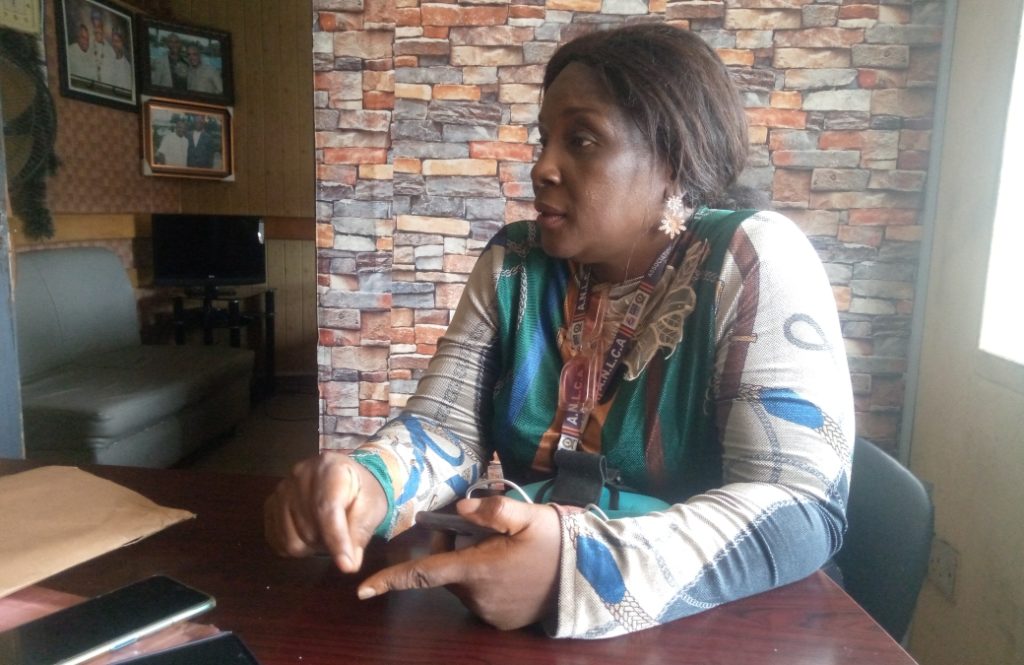By Roland Ekama
Ahead of the May 21st implementation , the Association of Nigerian Licensed Customs Agents (ANLCA) on Friday, called on the federal government to reduce import levies payable on fairly used cars with the relaunched valuation policy on Vehicle Identification Number (VIN) from 15% to 5% .
Public Relations Officer, Tin Can Island Port Chapter , ANLCA ,Comrade Onome Joy Monije who made the plea in chat with newsmen in Lagos , affirmed that practitioners are ready to comply with the directive of the federal government in line with trade facilitation and revenue collection of the Nigeria Customs Service.
Monije who is the Managing Director, ONAS 100 Resources Nigeria Limited, insisted that reduction in the import levies on fairly used vehicles would bring about a win – win situation to both importers , trading public and the government.

According to her , the VIN valuation is a welcome development for used vehicular importation into the country, noting that freight agents have engaged their principles and car dealers on the importance of the renewed VIN valuation.
Suggesting to the government on the best way out , she said “The VIN valuation for us is not as if there is an increment in charges or tariff , some price will remain intact but the only concern we are looking at is the aspect of fairly used cars import levies.
“For VIN we have no issue but the levy , because it is not about us the agents or customs but for government to look into the levy by reduction to 5% instead of 15%.
“Some used cars are stock in the port because of the levies and we know it will start tomorrow.
- Advertisement -
“It is not that we are crying more that the bereaved but this is our country and we need to look at the holistic approach on the levies and look at how best we reduce the 15% levy to 5%.
She noted that the government has the will power to assist in the reduction of levy in order to encourage Nigerians to drive luxury and affordable vehicles.
Recall that management of Nigeria Customs Service unanimously agreed on Thursday , to reintroduce the country’s suspended Vehicle Identification Number (VIN).
The Service said it remained committed to the VIN valuation policy, even as it assured that all areas of concern would be addressed as implementation began.
The VIN valuation was first introduced about two months ago, but received uproar from the freight forwarders who described the policy as unrealistic due to the high values imposed on vehicles, and the lack of consideration for rebate on accidented and used vehicles.
The Service management stressed the importance of automation in Customs processes, saying that with the implementation of VIN valuation, agents can process the clearance of their vehicles from the comfort of their offices.
Customs management promised that the policy would be discussed with agents on a regular basis and that a help desk would be set up to help with any problems that might arise during implementation.
The clearing agents under the aegis of the Association of Nigeria Licensed Customs Agents (ANLCA), National Association of Government Approved Freight Forwarders (NAGAFF), and National Council of Managing Directors of Licensed Customs Agents (NCMDLCA), among others, agreed during a sensitization program on the re-launch of VIN Valuation by the Nigeria Customs Service (NCS) in Lagos that the platform which will facilitate the quick clearance of vehicles from the seaport
Clearing agents fought the VIN valuation policy, which was first implemented in January 2022 and raised the duty payable on fairly-used vehicles by more than 200 percent.




Comments are closed.